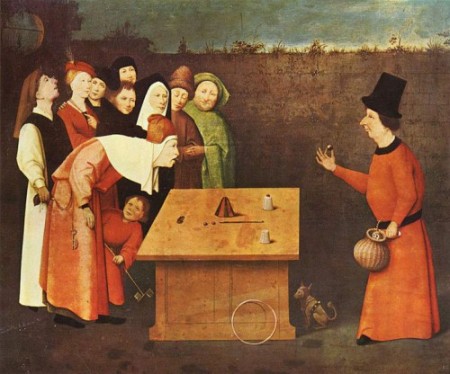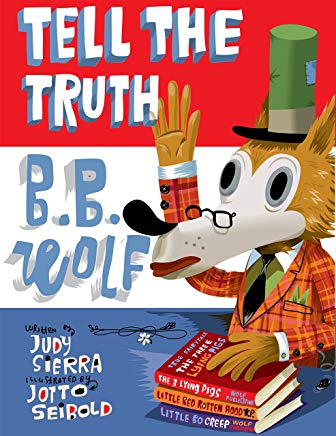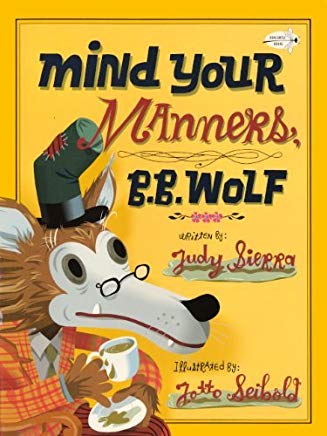The Blog
Blog Entry
Fool Me Twice

Tell me you’ve changed, tell me you love me, tell me my car needs new axles, and chances are I will believe you. That is my weakness, I could probably change it if I wanted, but life doesn’t feel worth living any other way.
I get burned, disillusioned, and eaten for breakfast more than is possibly optimal for self-esteem, still I’d like to believe my gullibility should meanwhile afford me a front row seat to even the most dubious rebirths and reinventions, even when I have nothing to gain from them personally, and especially when I have nothing to lose.
People pay good money for these seats. Show me a character worth believing, break my heart, replenish my hopes, and I’ll show you a perfect afternoon. When we first meet him, the conscience-stricken hero of Judy Sierra’s and J. Otto Seibold’s Mind Your Manners, B. B. Wolf is living in a retirement home for legendary villains (a troll, a crocodile, Frankenstein, sea monsters, Rumpelstiltskin, none of them overtly repentant) till an invitation to the annual library storybook tea arrives in the mail among bills for the legendary damage he’s wrought. Here is an opportunity at least to square his appearance with his evolution – for what are manners, after all, but an expression of willingness? – and whether you are buying this in the end probably depends if you believe that gingerbread boy wasn’t really asking for it all along.
The story of the three little pigs represents a slightly different order of youthful indiscretion, though even here you could make a case there was always something taunting about their manner – a little whiny and ineffectual if you ask me. Not saying, just saying, but Tell the Truth, B.B. Wolf suggests a button-eyed self-righteousness that has you kind of rooting for B.B. Wolf’s inspired revisionism when he is finally invited back to set the record straight. So what does the second initial stand for in this latest incarnation? Not Trouble, which he sings about inescapably popping up in front of him (those pedantic little porkers are quick to note the spelling discrepancy at any rate), but what about Bodacious, which would certainly describe the nerve of coming out of retirement to face his accusers (Pinocchio, Humpty Dumpty, The Little Engine all piling on) and adding fresh luster to what was always arguably some pretty godless folklore, in these, our edifying times?
“Give it a happy ending,” advises the crocodile as B.B. Wolf changes out of his suburban gangster style track suit into attire more befitting his newly Bookish nature. “Everyone expects a happy ending these days.” You may decide for yourself if the final crowd-pleasing restitution amounts to Benevolence, as B.B. neatly claims, or something much more aspirational. If sorry seems to be the hardest word, then perhaps that’s because it’s so nebulous without something to drape on top of it, always a middle and never an end: if I were those pigs, I’d try and enjoy it while I can.


